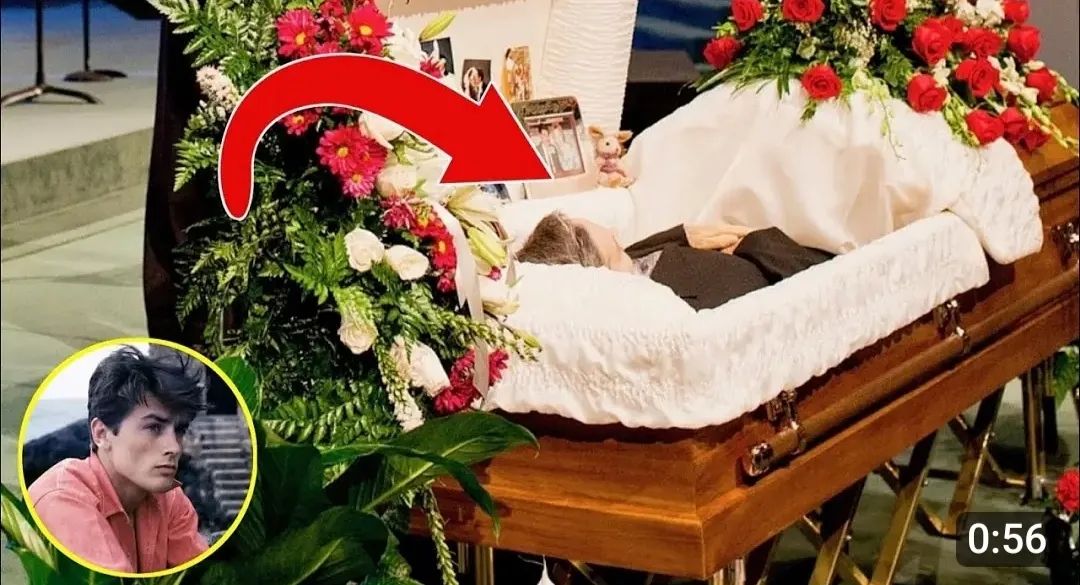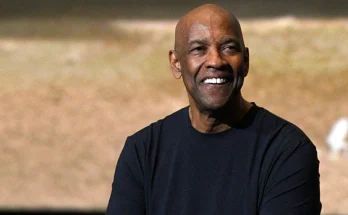
Alain Delon, the legendary French actor, has always been a man of strong convictions, a trait that has both defined his illustrious career and his approach to life. Now, in his twilight years, Delon is making headlines once again, this time for his candid discussions about euthanasia—a choice he views as his final act of autonomy in a life that has been marked by both glory and controversy.
Delon, who has captivated audiences for decades with his roles in films such as Le Samouraï and The Leopard, is no stranger to the public eye. Yet, his decision to openly discuss his wish for euthanasia has brought a new level of attention to a man who has always been a symbol of French elegance and resilience. At 88, Delon has faced numerous health challenges, including a stroke in 2019 that left him partially paralyzed and significantly weakened. These health issues have led Delon to confront his own mortality in a way that few public figures have done so openly.
In a rare and deeply personal interview, Delon spoke about his desire to end his life on his own terms, should his condition deteriorate to the point where he can no longer live with dignity. This decision, he says, is not born out of despair but rather out of a deep-seated belief in personal autonomy and the right to choose one’s own fate. “I have lived my life on my own terms,” Delon remarked, “and I wish to die the same way.”

Euthanasia, the practice of intentionally ending a life to relieve pain and suffering, is a topic that has long been controversial, particularly in France, where it remains illegal. Delon’s decision to publicly advocate for the right to euthanasia has sparked a national debate, bringing the issue to the forefront of public discourse. His stance has garnered both support and criticism, reflecting the deeply divided opinions on the subject.
For Delon, however, the choice is a deeply personal one, rooted in his belief in dignity and control. Throughout his life, Delon has been known for his strong will and determination, qualities that have driven him to the heights of cinematic success. Now, as he faces the inevitable decline that comes with age, those same qualities are guiding his decision to consider euthanasia as an option. “I do not want to suffer,” Delon stated bluntly. “I do not want to be a burden to anyone.”
The actor’s children, particularly his son Anthony, have publicly expressed their support for their father’s decision, emphasizing the importance of respecting his wishes. Anthony Delon has spoken candidly about the conversations he has had with his father regarding the end of life, noting that his father’s desire for euthanasia is rooted in a desire to maintain his dignity. “My father has always been a proud man,” Anthony said. “He wants to go out with his head held high, on his own terms.”
This support from his family has been crucial for Delon, who has always valued his independence and privacy. Despite his long-standing status as a public figure, Delon has fiercely guarded his personal life, retreating into seclusion in recent years as his health has declined. His decision to speak out about euthanasia, therefore, is all the more striking, representing a rare glimpse into the private thoughts of a man who has spent much of his life in the spotlight.
Delon’s openness about his desire for euthanasia has resonated with many, particularly in an era where discussions about the right to die are becoming increasingly common. In countries like Belgium, the Netherlands, and Switzerland, euthanasia is legal under certain conditions, and the debate over its legalization continues to grow across the globe. Delon’s advocacy for the right to choose how and when to die is seen by many as a powerful statement about the importance of personal autonomy in the face of suffering.

However, not everyone agrees with Delon’s stance. Critics argue that euthanasia is a slippery slope that could lead to the devaluation of life, particularly for the elderly and disabled. Religious groups, in particular, have voiced strong opposition, citing ethical and moral concerns. In France, where the issue remains legally and socially contentious, Delon’s remarks have reignited a heated debate about the role of euthanasia in end-of-life care.
Despite the controversy, Delon remains resolute in his beliefs. For him, the choice is not about ending life prematurely but about ensuring that his final moments are lived with the same dignity and control that he has cherished throughout his life. It is, in many ways, the ultimate expression of the fierce independence that has defined his career and his persona.
As Alain Delon faces the final chapter of his life, his contemplation of euthanasia stands as a testament to his enduring strength and conviction. It is a decision that, like his most memorable roles, will leave a lasting impact—both on those who have followed his career and on the ongoing debate about the right to die. For Delon, this final act of defiance may well be his most poignant legacy.


